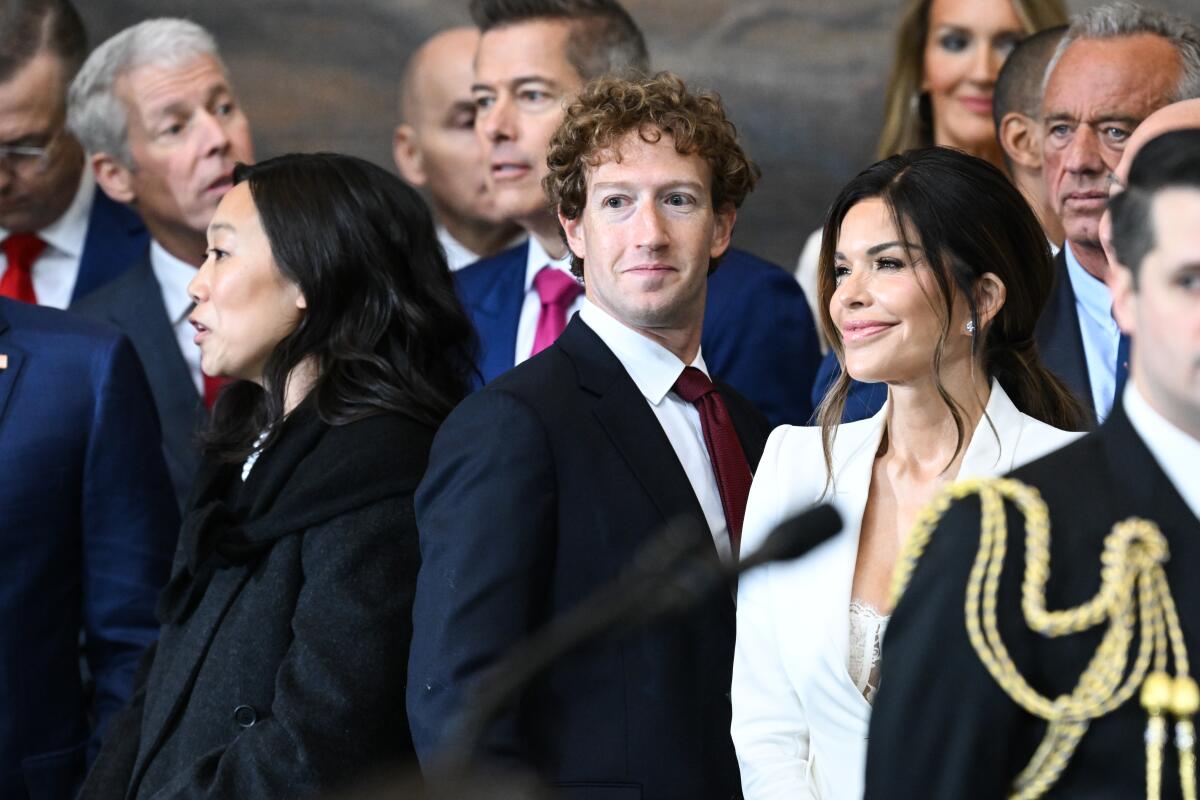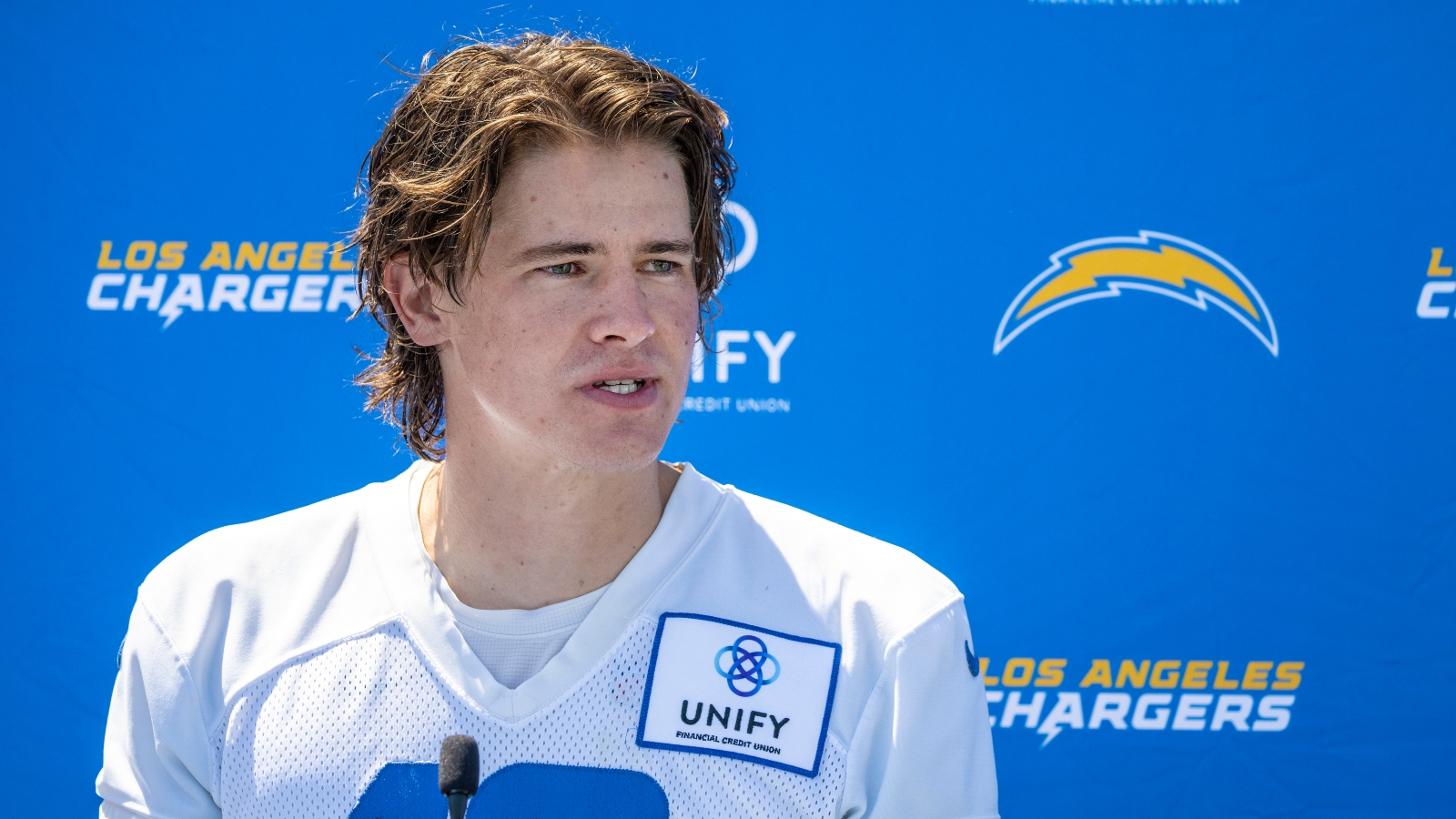The Zuckerberg-Trump Dynamic: Impact On Tech And Politics

Table of Contents
Facebook's Role in the 2016 US Presidential Election and Beyond
Facebook, under Zuckerberg's leadership, played a pivotal role in the 2016 US Presidential election and continues to be a central player in the political landscape. Its impact, both positive and negative, warrants careful examination.
Cambridge Analytica Scandal and Data Privacy Concerns
The Cambridge Analytica scandal exposed a significant breach of user data, where millions of Facebook profiles were harvested without consent and used for targeted political advertising. This event severely damaged public trust in Facebook and spurred global conversations around data privacy. The scandal highlighted critical vulnerabilities in Facebook's data protection measures and fueled calls for stricter regulations.
- Data breaches: The Cambridge Analytica scandal wasn't an isolated incident; Facebook has faced numerous data breaches, raising serious concerns about its ability to safeguard user information.
- User consent: The lack of transparency and informed consent in data collection practices became a major point of contention, leading to increased scrutiny of Facebook's data handling policies.
- Regulatory responses: The scandal prompted significant regulatory responses, including the General Data Protection Regulation (GDPR) in Europe and the California Consumer Privacy Act (CCPA) in the US, aiming to strengthen data privacy protections.
Spread of Misinformation and Foreign Interference
Facebook's algorithm, designed to maximize engagement, inadvertently amplified the spread of misinformation and foreign interference during the 2016 election and subsequent political events. Russian operatives, for example, used the platform to disseminate propaganda and sow discord among the electorate. While Facebook has since implemented fact-checking initiatives and invested in content moderation, the challenge of combating misinformation remains substantial.
- Russian interference: The scale of Russian interference on Facebook during the 2016 election highlighted the platform's vulnerability to malicious actors.
- Algorithm biases: Facebook's algorithm has been criticized for amplifying extreme viewpoints and creating echo chambers, contributing to political polarization.
- Fact-checking initiatives: While Facebook has partnered with fact-checkers, the effectiveness of these initiatives in stemming the tide of misinformation is constantly debated.
Trump's Use of Facebook for Political Communication
Donald Trump effectively leveraged Facebook as a powerful tool for political communication, directly reaching his supporters and bypassing traditional media gatekeepers. His frequent posts, often controversial, garnered massive engagement and shaped political narratives. This strategy, while effective in mobilizing his base, also contributed to the spread of misinformation and the erosion of trust in established news sources.
- Direct communication: Trump used Facebook to directly address his supporters, bypassing the filter of mainstream media.
- Campaign advertising: His campaign effectively utilized Facebook's targeted advertising capabilities to reach specific demographics.
- Bypassing fact-checkers: Trump's use of Facebook allowed him to disseminate information without the same level of scrutiny as traditional media outlets.
The Shifting Power Dynamics Between Tech and Politics
The Zuckerberg-Trump dynamic has significantly altered the power dynamics between the tech industry and the political sphere. This shift has led to increased scrutiny of tech companies and a growing debate about the future of social media regulation.
Increased Government Scrutiny of Tech Companies
The influence of tech giants like Facebook has prompted increased government scrutiny, leading to antitrust concerns and calls for stricter regulations. The potential impact on Facebook's market dominance is a significant factor in the ongoing debate.
- Antitrust lawsuits: Facebook has faced multiple antitrust lawsuits alleging anti-competitive practices.
- Data protection laws: Regulations like GDPR and CCPA reflect the growing pressure on tech companies to prioritize data privacy.
- Content moderation policies: The challenge of content moderation and the balancing of free speech with the prevention of harmful content remains a major area of debate and regulatory focus.
The Impact on Political Discourse and Polarization
The Zuckerberg-Trump dynamic significantly contributed to the increased polarization of political discourse. The spread of misinformation, the creation of echo chambers, and the use of targeted advertising all played a role in exacerbating existing divisions.
- Algorithmic bias: Facebook's algorithm has been criticized for contributing to echo chambers and reinforcing pre-existing biases.
- Echo chambers: The algorithm can create echo chambers where users are primarily exposed to information confirming their existing beliefs, limiting exposure to diverse perspectives.
- Spread of extremist views: The platform has been criticized for its role in the spread of extremist viewpoints and conspiracy theories.
The Future of Social Media Regulation
The future of social media regulation is uncertain but crucial. Balancing the need to protect free speech with the imperative to prevent the spread of misinformation and safeguard user data poses a significant challenge for policymakers worldwide.
- Section 230 reform: The ongoing debate over Section 230 of the Communications Decency Act in the US reflects the complexity of regulating online content.
- Content moderation challenges: Tech companies face the immense challenge of effectively moderating content while respecting free speech principles.
- International regulatory harmonization: The need for international cooperation in regulating social media platforms is growing, to address the global nature of these platforms.
Conclusion
The Zuckerberg-Trump dynamic highlights the increasingly intertwined relationship between technology and politics. The influence of social media on elections, the spread of misinformation, and the power of tech giants are undeniable. Understanding the complexities of this relationship is crucial for navigating the challenges of the digital age. Moving forward, a critical discussion around the regulation of social media platforms is vital to ensure fair elections, protect user data, and foster a healthy democratic process. To stay informed about this ever-evolving relationship, continue to follow news and analysis on the Zuckerberg-Trump dynamic and its impact on tech and politics. The implications of this dynamic are far-reaching and require ongoing attention and critical analysis.

Featured Posts
-
 The Likelihood Of A Fifth Champions League Place For The Premier League
Apr 27, 2025
The Likelihood Of A Fifth Champions League Place For The Premier League
Apr 27, 2025 -
 Chargers To Kick Off 2025 Season In Brazil Justin Herberts Role
Apr 27, 2025
Chargers To Kick Off 2025 Season In Brazil Justin Herberts Role
Apr 27, 2025 -
 Justin Herbert Leads Chargers To Brazil For 2025 Season Opener
Apr 27, 2025
Justin Herbert Leads Chargers To Brazil For 2025 Season Opener
Apr 27, 2025 -
 Belinda Bencic Triumphs First Wta Win After Motherhood
Apr 27, 2025
Belinda Bencic Triumphs First Wta Win After Motherhood
Apr 27, 2025 -
 Dax Volatility Predicting Market Fluctuations Based On Elections And Economic Figures
Apr 27, 2025
Dax Volatility Predicting Market Fluctuations Based On Elections And Economic Figures
Apr 27, 2025
